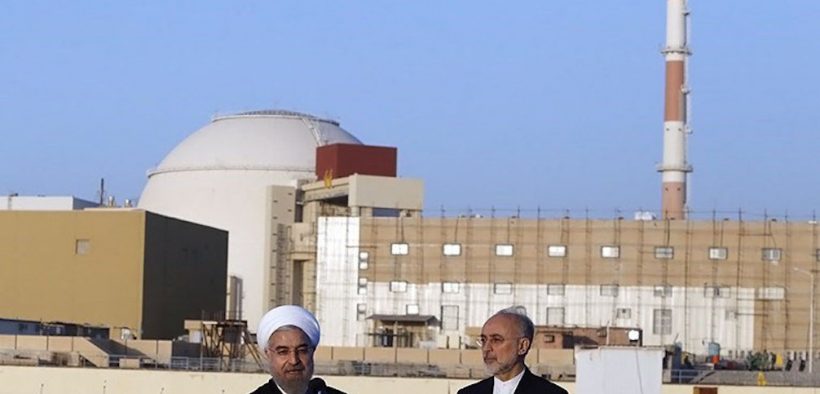Iran Discovers Huge New Oil Fields as US Continues Iranian Oil Sanctions

President Rouhani announced the discovery of a huge new oilfield in Iran, but will Iran have any buyers as U.S. sanctions continue to scare off customers?
Standing in the desert city of Yazd, Iranian President Hassan Rouhani announced the discovery of a new oilfield Sunday in southern Iran with an estimated 50 billion barrels of crude oil. Iran already has estimated reserves of 150 billion barrels of crude oil, the fourth-largest in the world. The discovery of the new field would make it Iran’s second-largest oilfield but comes as the country struggles to sell its oil abroad due to U.S. sanctions.
“I am telling the White House that in the days when you sanctioned the sale of Iranian oil and pressured our nation, the country’s dear workers and engineers were able to discover 53 billion barrels of oil in a big field,” Rouhani said.
US Sanctions Strangle Iranian Oil Sales
The U.S. withdrew from the 2015 Iran Nuclear deal, formally known as the Joint Comprehensive Plan of Action (JCPOA), in 2018 under President Trump who accused Iran of failing to comply with the deal. Trump’s accusations came despite fifteen consecutive reports from the International Atomic Energy Association (IAEA) assuring Iran’s compliance with the deal.
Following the collapse of the deal, the U.S. reimposed sanctions on Iran specifically targeting the Iranian economy and Iranian oil sales. As part of the U.S.’ effort to strangle the Iranian economy, the U.S. threatens to impose sanctions on any country or company doing business with Iran or purchasing Iranian oil.
According to Reuters, Iranian crude oil exports have been slashed by more than 80% since the reimposing of sanctions under President Trump.
In response to the U.S. withdrawal from the JCPOA, Iran announced one year after the deal’s collapse that it would no longer abide by the limit set under the deal to enrich uranium to only 3.67%. Iran is now believed to be enriching uranium to 5%.
Uranium can be used to fuel power plants and make atomic bombs. While power plants can run on uranium enriched to 3-5%, atomic bombs and other weaponry needs uranium enriched to at least 80%. Prior to 2015, nuclear deal, the IAEA reported Iran had started to enrich uranium up to 20%.
Does the US Have a Double Standard for Saudi Arabia?
The U.S.’ disapproval of Iran’s nuclear program comes despite recent announcements that Saudi Arabia is planning to start a uranium enrichment program as the country moves to build its first two nuclear reactors. Saudi Arabia will likely be looking to enrich uranium to the same levels that Iran was enriching uranium to when the U.S. pulled out of the JCPOA.
In contrast to the U.S. condemnation of the Iranian nuclear program, the announcement that Saudi Arabia would begin enriching uranium sparked little reaction from the U.S. In fact, the U.S., seems to be in support of and aiding Saudi Arabia’s visions for a nuclear program.
In March of 2019, as Citizen Truth previously reported, news broke that the Trump administration had already secretly okayed six American companies to conduct nuclear-related work in Saudi Arabia. The month prior, the House Committee on Oversight and Reform opened an investigation into the Trump administration’s approval, looking into whether it rushed the sale of sensitive nuclear technology to Saudi Arabia and violated U.S. law by bypassing the required congressional approval.
According to the House report, under the Atomic Energy Act (AEA) “the U.S. may not transfer nuclear technology to a foreign country without the approval of Congress, in order to ensure that the agreement reached with the foreign government meets nine specific nonproliferation requirements.”
Similarly, Trump has forced through the sale of billions in weapons to Saudi Arabia also bypassing or vetoing the necessary congressional approval. In July, Trump vetoed three bills passed by both the House and Senate which prohibited the sale of arms to Saudi Arabia and the United Arab Emirates. Previously, in May, Trump declared an emergency in order to bypass Congress and speed up the sale of weapons to Saudi Arabia.







